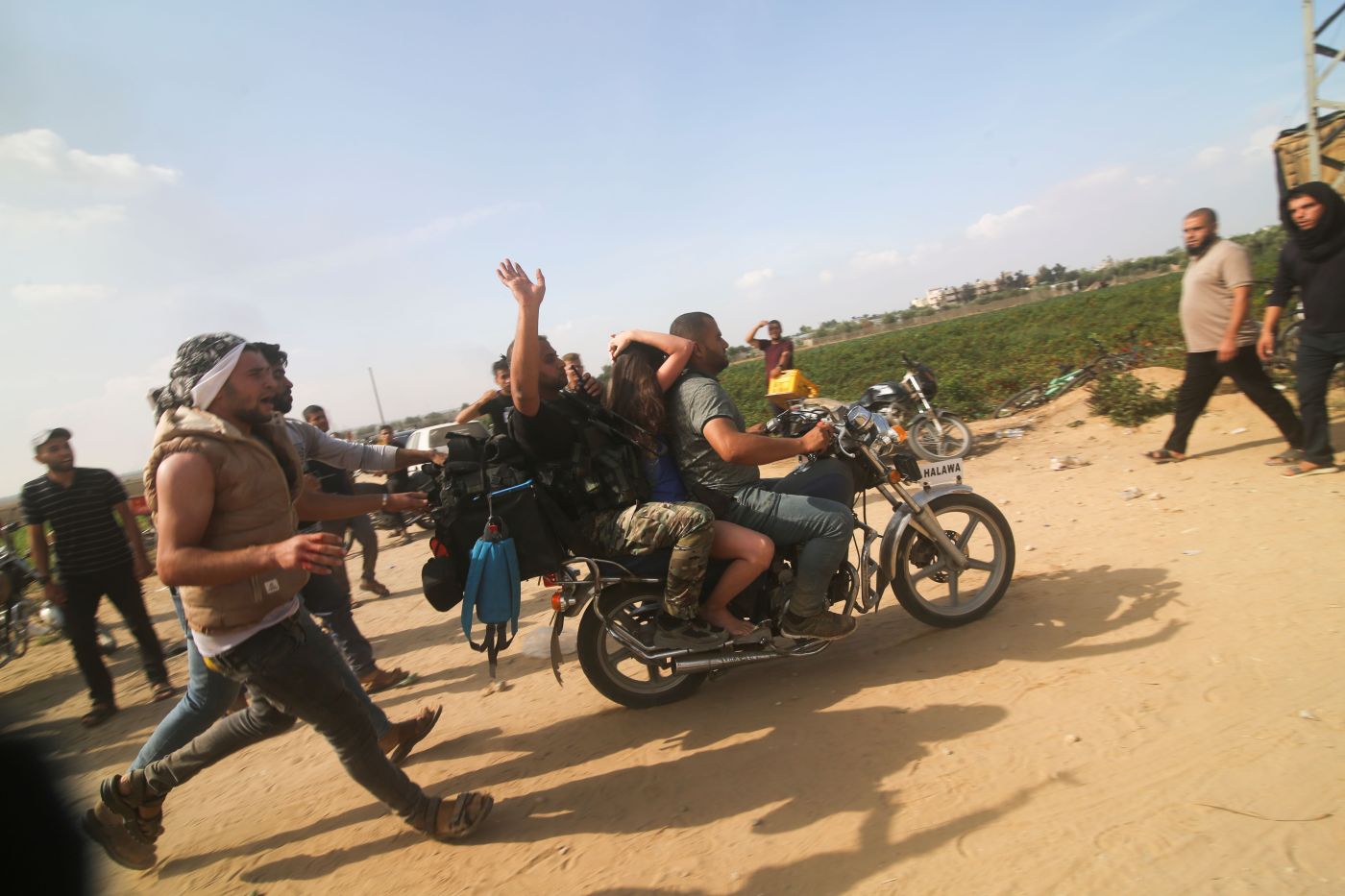
Nativ: Tackling misconceptions about Israel-Hamas war
I began writing this draft inside the Gaza Strip, longing for the day when I could enjoy time with my Palestinian friends at the beach instead of being here as an IDF reserve medic. I met these friends through a Boston-based entrepreneurship program, which I joined as a startup CEO focused on Mind Dome, which led me to interact with other Palestinian and Israeli participants and local students. Writing a column to explain the Israeli narrative around the Israel-Gaza war is challenging; opinions abound, often formed thousands of miles away and influenced by simplistic, TikTok-like messaging. However, I want to share with students in the Boston area what it’s really like here and correct some common misconceptions. This piece offers a perspective for those willing to consider a different viewpoint.
The significant gaps in factual information are a major issue in understanding this conflict. For example, a Palestinian friend, in contact at the beginning of the fighting, accused us of fabricating stories about Hamas’ atrocities. He directed me to a Hamas website when I asked for a source. Consider the implications of forming opinions based predominantly on biased information. During my service, I’ve witnessed terrorists using hospitals for cover, but the world often only sees the IDF’s response.
It’s hard to understand narratives based on disputable facts and a culture far removed from the Middle East. Culturally, Israelis and Americans share more similarities regarding Western culture. At the same time, the Palestinian version of the conflict’s history aligns more with the narrative style popular in the TikTok era, portraying the war as a fight between people of color versus whites, strong versus weak, and oppressors versus oppressed, even when this doesn’t align with reality. Israel is not white. My wife is of Iraqi descent, for instance. Most Israelis don’t want to control anyone as long as they are safe. Shouting ‘Free Palestine from the river to the sea,’ thinking you’re on the right side, helping who you think is the weaker righteous side, means killing my entire family, and that will not happen. What can we do? Life is more complicated than a black-and-white analysis.
It feels that some of the protesters don’t differentiate between the humans in Gaza and Hamas. Supporting Hamas means you hate women, for example. Hamas orchestrated one of the biggest self-documented rapes in modern history (but once again, you may not believe this “Jewish propaganda”). A Palestinian I met expressed her desire to change laws that permit a husband to kill his unfaithful wife. Now, imagine explaining to LGBTQ+ and women’s rights groups the stark contrast in their acceptance and safety between Gaza and Tel Aviv. Which values are you fighting for?
So you might think – OK, the Hamas regime is far from perfect, but they are right to resist because they are occupied. Well, they are not. On Oct. 6, there were no Israeli soldiers or settlers in Gaza. I witnessed Israel’s withdrawal from Gaza in 2005 – I was there; not a single Jew lives there now. You might argue that Israel has control of its border and types of goods that might be used for military purposes, but given the thousands of wounded and killed on Oct. 7, to be fair – you could say it is a reasonable precaution. By the way, in the context of preventing one from going somewhere based on religion or identity, do you know how many Jews are living in any of the other 22 Arab countries? Are we welcome there? How many Jews were exiled from Arab countries in 1948 and became refugees? Where are all the protests?
This conflict, centuries in the making, saw attempts to annihilate Israelis in 1948 (where my grandfather nearly died, and 1% of Jews in Israel were killed – proportionally equivalent to 3.4 million Americans today), 1967, and 1973 (when my father nearly died), and beyond (and before). Viewing the conflict only through its current state lacks the depth to understand its origins and evolution. Israel is currently facing attacks from seven fronts, orchestrated by Iran, a nation openly calling for Israel’s eradication (like Hamas). In this Middle Eastern neighborhood, appearing weak is not an option. The support of many Americans for Hamas – besides being dangerous for me and other Israelis – is dangerous for the supporters as well. The ideology that wishes for Israel not to exist is not friendly to the US either.
My heart aches for my Palestinian friends; I sincerely wish for their happiness and safety while clearly understanding that Hamas needs to be eradicated. Complicated? Yes, but so is life in one of the most complex conflicts in history. I stand committed to my duty to the IDF to protect my home, on the one hand, and I am also committed to a solution in which my Palestinian friends can prosper and feel safe. Unlike many protestors on American campuses, I can contain and balance these seemingly contradictory desires.
What would you do if you worked for peace much of your life only to see your homeland invaded, your friends killed, and your community subjected to atrocities?
Yair Nativ is the CEO of Mind Dome, “The First Line of Defense for Your Mind.” He serves as a reserves medic in the surgical unit of the Nahal (IDF).


